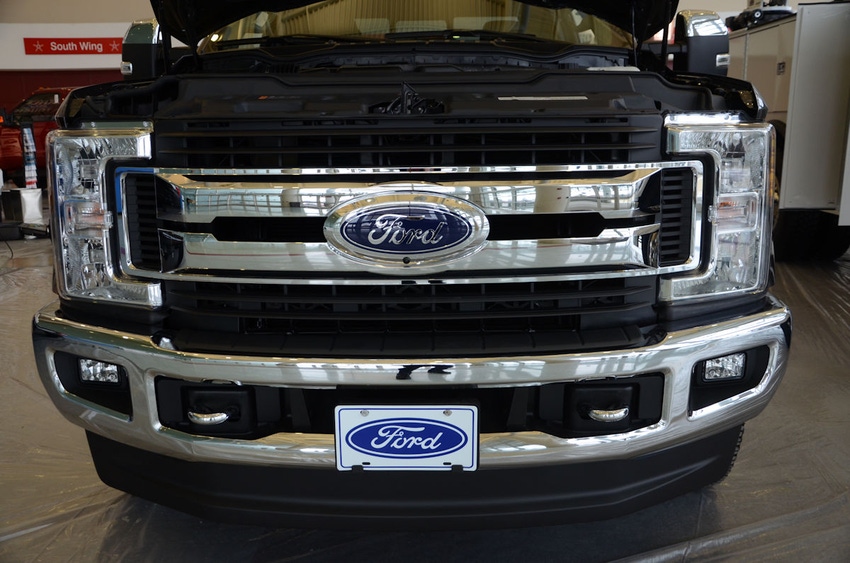Consider Section 179 and bonus depreciation before you sign up.

If you’re planning on purchasing or financing a new or used vehicle for your roofing business, you may be able to get a great tax benefit in doing so. The Section 179 tax deduction allows a taxpayer to deduct part or even all of the cost of the vehicle in the first year that it is used for business so long as it meets the requirements of Section 179 of the Internal Revenue Code. Contrary to popular belief, the benefits of Section 179 can extend far beyond that of purchasing a vehicle.
Not So Fast
Before you sprint to your nearest exotic car dealership to finance a 2021 Lamborgini Aventador and slap your roofing company’s decal on the side, there are a few rules to be aware of. First, not every vehicle can receive Section 179 tax treatment. Heavy SUVs, pickups and vans that are used for business more than 50% of the time and exceed 6,000 lbs. gross vehicle weight are eligible. Obvious vehicles that are used solely for business with no potential for personal use also qualify, such as delivery-type vehicles or a classic cargo van or box truck with no passenger seating. These types of vehicles could also include a hearse or ambulance, which have little to no value for personal use.
Next, there are limits to the price amount for equipment that a business is seeking Section 179 treatment for; your entire fleet cannot consist of Mercedes-Benz G-Wagons. The Section 179 limit for 2021 allows for up to $1,050,000 in eligible equipment to be deducted, and the ‘total equipment purchased’ by a business cannot exceed $2,620,000. Once the equipment purchased exceeds that number, the deduction reduces on a dollar-for-dollar basis. The cost of any sport utility vehicle for any taxable year which may be considered under Section 179 shall not exceed $25,000. Small business owners will also be surprised to hear that you do not have to purchase a vehicle outright to qualify for Section 179, you can also use the tax deduction on vehicles that are being financed. Taxpayers are also usually surprised to learn that the vehicle does not have to be from the showroom floor. So long as the vehicle is new to you and meets all other requirements, it is eligible for Section 179 treatment.
Deduction vs. Depreciation
Small business owners need to make sure that they do not confuse Section 179 deduction with bonus depreciation. Bonus depreciation is taken after the Section 179 deduction is taken. Therefore, it is useful for very large businesses spending more than whatever Section 179’s spending limit is for that year. Also, businesses with a net loss in a given tax year qualify to carry forward the bonus depreciation to a future year. When applying these provisions, Section 179 is generally taken first, followed by bonus depreciation, unless the business has no taxable profit in the given tax year. New and pre-owned heavy SUVs, pickups and vans acquired and put to business use in 2021 are eligible for 100% first-year bonus depreciation so long as their gross vehicle weight exceeds 6,000 lbs. The only other requirement is that you must use the vehicle more than 50% for business.
If you made a purchase in a prior year and want to claim the Section 179 deduction, that is unfortunately not permissible. To qualify for the Section 179 deduction for any given tax year, the equipment must be purchased (or financed/leased) and placed into service between Jan. 1 and Dec. 31 of that year. However, Section 179 can be used every year. It was made a permanent part of our tax code with the Protecting Americans from Tax Hikes Act of 2015 (PATH Act).
Finally, and this step is possibly the most important to note, the Section 179 deduction is NOT automatically applied. To receive the benefit, the taxpayer MUST elect Section 179 treatment on their tax return. To take the Section 179 deduction, a taxpayer must disclose the acquisition on Form 4562 (Depreciation and Amortization) in the year that the vehicle is obtained.
Don't Leave Money on the Table
It is often a misconception that Section 179 only applies to business vehicles. Section 179 applies to a variety of material goods including equipment. Do you need a new Equipter RB4000 or another roofing trailer? Do you want to keep the safety of your works in mind with new safety harnesses? Both examples are valuable pieces of equipment in the roofing industry. The policy behind Section 179 is to provide businesses with an incentive to purchase new equipment. All businesses need equipment on an ongoing basis, whether it be machinery, computers, software, office furniture, vehicles or other tangible goods. Your business will likely purchase many of these goods during the year and will continue to do so year after year. Section 179 is designed to make purchasing/leasing that equipment during this calendar year financially attractive as an incentive to stimulate the economy.
If a small business owner purchases/finances a new vehicle for their company without taking the Section 179 deduction (and bonus depreciation if applicable), they are simply leaving money on the table for the company. By utilizing this extremely useful deduction, a taxpayer could potentially save tens of thousands of dollars for their business. If you own a small business and have any questions regarding Section 179, bonus depreciation, or any other beneficial tax deductions that you may be missing out on, please reach out to the professionals at The Center for Financial, Legal and Tax Planning, Inc at (618) 997-3436.
About the Author(s)
You May Also Like


